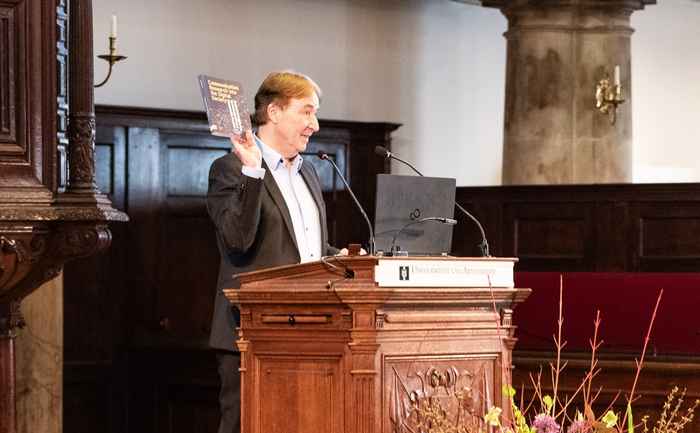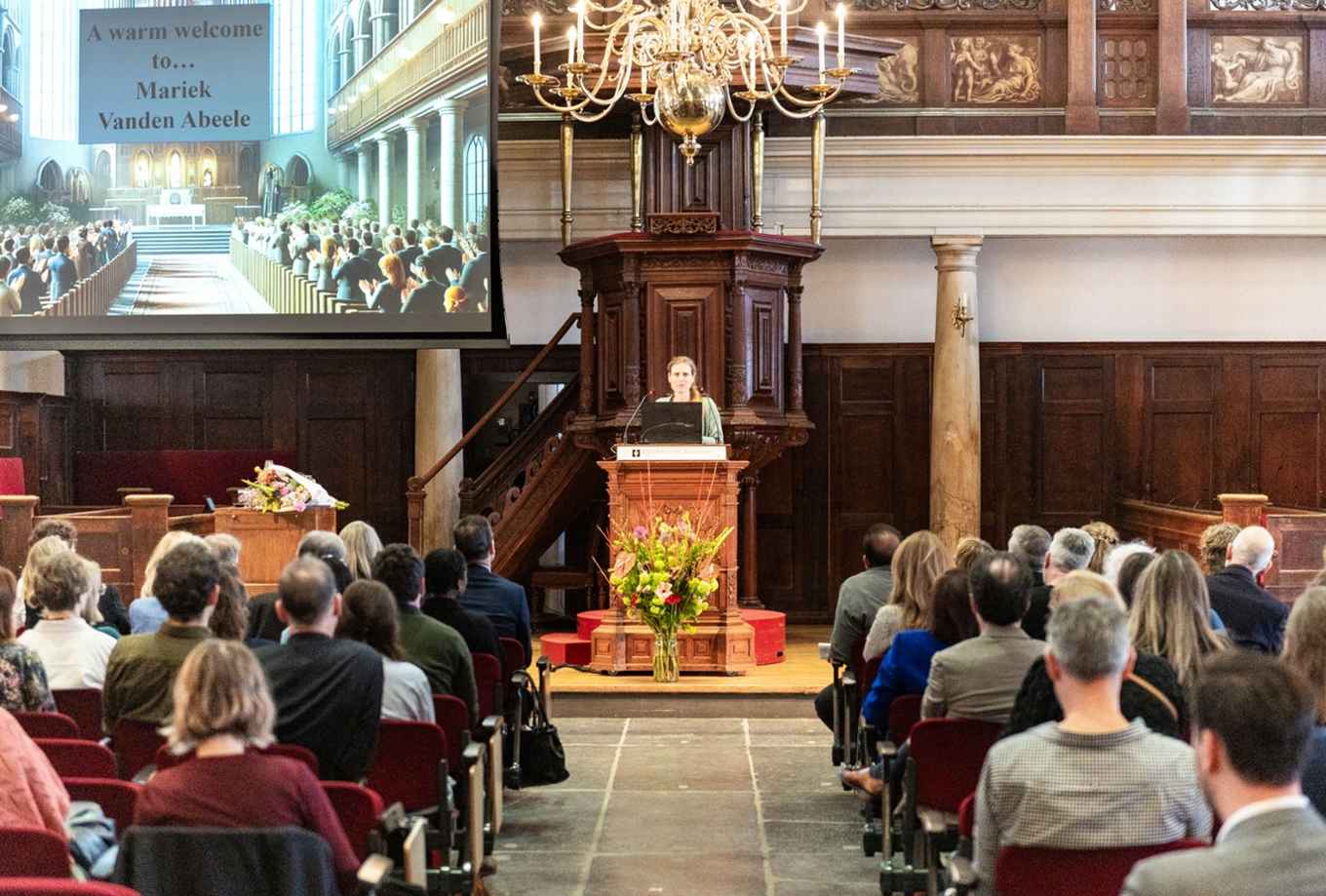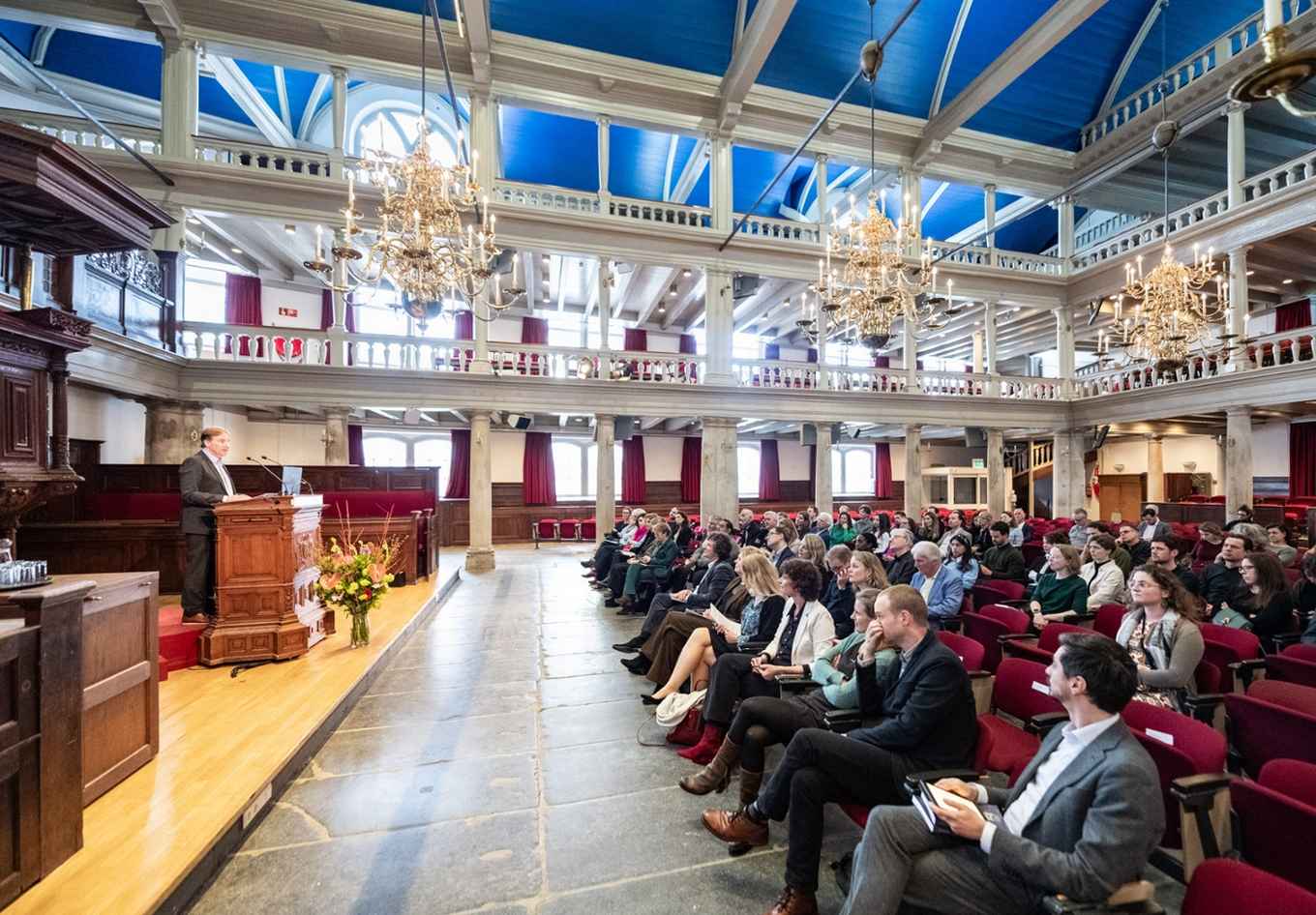ASCoR 25 years: Celebrating successes, looking ahead, and fighting disinformation together
19 February 2024
The day kicked off with discussions about the interdisciplinary nature of communication science, the societal impact of the research institute, and looking ahead to the coming years. After lunch, the first congratulations came from Rector Magnificus Peter-Paul Verbeek and dean of the Faculty of Social and Behavioral Sciences, Agneta Fischer. The research institute has been topping international lists for years, although the modest ASCoR board prefers not to draw too much attention to that.

Fundamental insights from ASCoR’s Research
The first compliment from within ASCoR came from Peter Neijens. 'ASCoR has been extremely successful,' according to the former director during the presentation of the new book 'Fundamental insights from ASCoR’s research'. This book offers a unique overview of the way people use the media landscape and the influence of communication on individuals, organizations, and society.
Love-hate relationship
Natali Helberger, working for the law faculty, has been appointed Leydesdorff Interdisciplinary Fellow for her research and contribution to communication science. With this appointment, Helberger aims to improve interdisciplinary research on personalized communication, she explained during the symposium. Furthermore, Mariek Vanden Abeele received the ASCoR McQuail Award for her article "Digital Wellbeing as a Dynamic Construct". Using everyday examples, Vanden Abeele outlined the complex love-hate relationship with our phones.

Focus on disinformation
The programme ended with the announcement of the Mis/Disinformation Initiative. In September, four PhD positions will become available for this project, and on the educational side, a minor in Communication Science will be launched on this theme. Christian Burgers introduced the initiative. The project focuses on how organizations deal with disinformation and how to better protect people from fake news. Finally, panel leader Claes de Vreese discussed this with three communication scientists, a Volkskrant journalist, and a media literacy specialist from Beeld en Geluid. This included discussions on the pros and cons of the influence of AI, the undermined trust in journalists, and learning to recognize disinformation. The conclusion was clear: there's plenty for the scientists involved in this important project to do.
